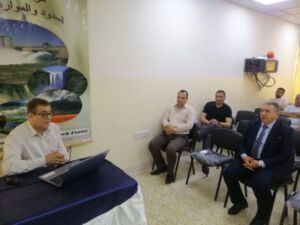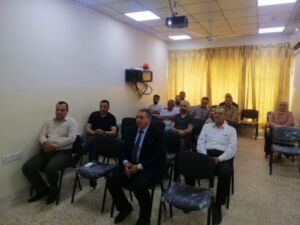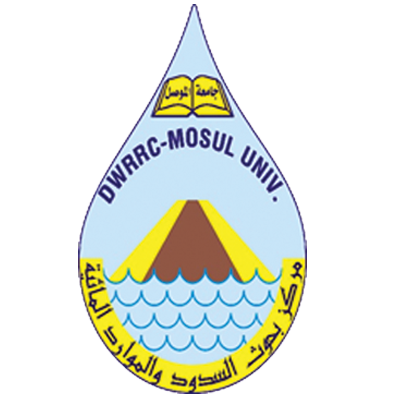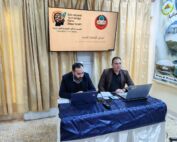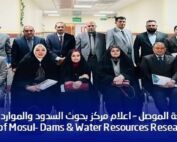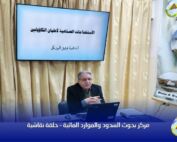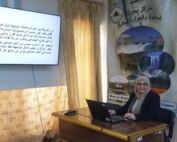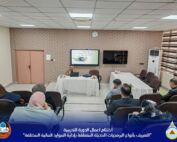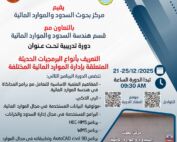25 May، 2024
DWRRC Hosts A Workshop on Water Consumption Rationalization for Sustainable Development

As part of the University of Mosul’s strategy to achieve sustainable development goals, the Dams and Water Resources Research Center held a workshop on Monday, May 20, 2024, namely “Water Consumption Rationalization for Sustainable Development,” presented by Asst. Prof. Dr. Khalil Ibrahim Othman.
In the workshop, Dr. Othman highlighted the importance and the reasons necessitating the achievement of water sustainability, besides the outcomes that can be realized through its application. The presentation began by discussing the Iraq’s water resources situation nowadays, including the available water in rivers, reservoirs, and other sources. It then covered how to manage these quantities to ensure the needs of civil, agricultural, and industrial uses are met, and the allocation percentages of water among these sectors.
The session also continued to address the issues of Water Demand Management and how awareness at the Individual, Community, and State Institution levels is relevant in the attainment of a sustainable water supply. Some of the measures identified by Dr. Othman included, Various measures be taken by individuals and families to ensure water utilization at the household level be lowered and wastage minimized. This involves; teaching families the implications of replenishing water usage, implementing advanced engineering technology in the plumbing systems, and incorporating up-to-date technologies in appliances to ensure the least consumption of water.
Moreover, the session described the contingency measures focusing on the agricultural sector, such as using modern irrigation technologies to reduce water wastage and managing these projects effectively concerning importance, design, and quality to utilize available water efficiently and productively.
Dr. Othman also discussed various measures and plans that must be adopted and practiced by superintending authorities in factories; and that must be designed and performed to maintain a rational use of water and minimize water pollution, to enhance water management, and achieve water sustainability in the whole country.
